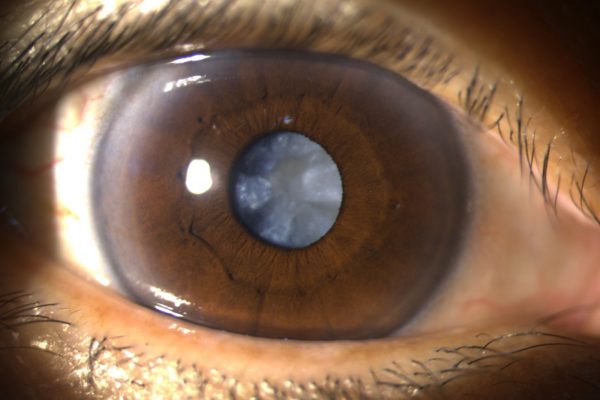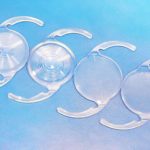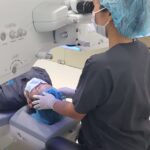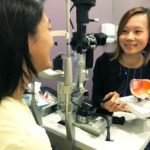Cataract Surgery
Do I have Cataracts?
The risk of cataracts increases with age. 78.6% of Singaporeans aged 60 and above have cataracts. Think you have cataracts? Refer to our list of cataract symptoms.
when should I have Cataract surgery?
As cataracts progress, vision becomes increasingly worse. Cataract surgery is recommended when vision worsens to the point where it starts to affect daily activities such as reading, writing and driving.
Do not wait too long to have cataract surgery. Once cataracts have reached the hypermature stage, they become “harder” and more difficult to remove, thereby increasing the risk profile of the surgery.
"4-in-1" Cataract Surgery
Cataract involves the (a) removal of the cloudy lens and (b) insertion of an intraocular lens implant. As a result, cataract surgery is able to treat:
- Cataracts
- Myopia/Hyperopia
- Astigmatism
- Presbyopia (lao hua)
- Phacoemulsification
- Femtosecond Laser-Assisted Cataract Surgery
Both methods are regarded as safe, effective, and established.


Intraocular Lens Implants (IOLs)
There are many different types and brands of IOLs in the market. However, they can be classified into two main types:
Monofocal IOLs
- IOLs with one focal point
- Patients can choose between ‘sharp at distance’ or ‘sharp at near’
- Sharp at near: patients have clear near vision but have to wear glasses for distance vision
- Sharp at distance: patients have clear distance vision but have to wear reading glasses
- Able to provide sharp
- Less incidences of haloes and glares
- Reliance on glasses
Multifocal IOLs
- IOLs with more than one focal point – multifocal, trifocal, extended range of vision
- Patients can choose between ‘sharp at distance’ or ‘sharp at near’
- Sharp at near: patients have clear near vision but have to wear glasses for distance vision
- Sharp at distance: patients have clear distance vision but have to wear reading glasses
When Should I go For Cataract Surgery?
In general, it is recommended that one goes for surgery when cataract begins to cause inconvenience in their daily lives. If you being noticing cataract symptoms, it is best to consult an eye specialist.
At the hypermature stage, cataracts become harder and more difficult to remove. As such, cataract surgery at a hypermature stage poses higher risks.
Is There Any Way To Prevent Cataracts? Are There Any Other Treatments?
There is no scientifically-proven way of preventing cataracts.
Currently, cataract surgery is the only treatment that is medically-proven for cataracts.
If you are interested to learn more about the surgery, head over to our cataract surgery page. There you can find more in-depth information such as recovery time, surgical process, and choice of Intraocular Lens Implants (IOLs).
What Causes Vision To Be Cloudy Again After Cataract Surgery?
In some cases, patients are able to achieve good vision after surgery but have increasingly cloudy vision after a period of time. This is because posterior capsule opacification (PCO) has developed. The incidence rate of developing PCO after cataract surgery is rather high. As such, PCO is also known as “after-cataract” or “secondary cataract”.
PCO is caused by the migration, proliferation or differentiation of the residual lens epithelial cells. As a result of PCO, vision becomes more cloudy and hazy. People with PCO will also be more sensitive to bright lights and glares. PCO is easily treatable through a 15-min YAG laser procedure.
Citations
[1] Ho T, Law NM, Goh LG, Yoong T. Eye diseases in the elderly in Singapore. Singapore Med J 1997; 38:149-55







Technology
ISEC believes in continuous innovation, we regularly update our medical technology according to the latest industry developments.
Touch
Rest assured in the hands of experienced doctors with many years of surgical experience, as well as seasoned nurses and optometrists.
Trust
ISEC’s reputation is one that has been built around experience and trust, as evidenced by our large pool of referral patients.
